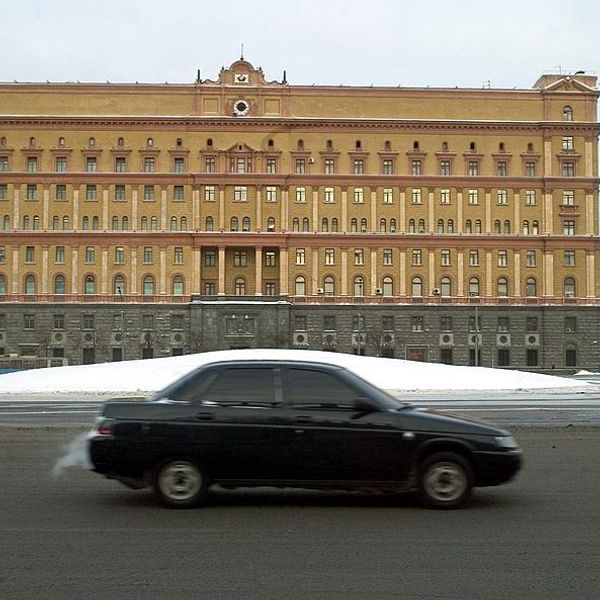Bottom Line Up Front
- At some point today, the U.S. government is expected to release its assessment on the murder of U.S. resident Jamal Khashoggi in the Saudi Consulate in Istanbul.
- President Trump has already minimized the assessment, questioning ‘will anybody really know?’ when asked about the Khashoggi murder during an interview.
- This follows a leak which reportedly confirms the CIA has concluded ‘with high confidence’ that the murder was ordered by Saudi Crown Prince Mohammed bin Salman.
- President Trump routinely dismisses the work of U.S. intelligence agencies and questions the loyalties of intelligence officials when it contradicts his personal opinions, which are not based on evidence or analysis, but ‘instinct.’
The U.S. is once again drifting away from long-time allies, this time by choosing not side with the European Union in demanding a full and transparent explanation by the Saudi government for the murder of Jamal Khashoggi inside the Saudi consulate in Istanbul, Turkey, on October 2, 2018. From the start, the numerous stories relayed by the Saudi government have all been implausible to varying degrees. The lack of credibility stems from the fact that the half dozen or so Saudi explanations all ignore how personnel extremely close to Crown Prince Mohammed bin Salman could participate in the events that transpired, without first seeking and securing his permission. These include traveling on private Saudi government jets, murdering Khashoggi inside the consulate, calling one of Mohammed bin Salman’s top advisors, and finally dismembering and disposing of Khashoggi’s body before flying back to Riyadh. One version alleged a ‘rogue’ operation that incredulously suggested that this chain of events took place without the knowledge of the Crown Prince, whose image has been of a man in total control of even the most mundane details related to the Kingdom.
On November 16, there were reports suggesting the CIA had concluded ‘with high confidence’ that the murder of Khashoggi was ordered by Mohammed bin Salman. This set up another very public schism between President Trump and the intelligence community. After the news of the CIA assessment, the State Department released a statement that ‘reports indicating that the U.S. government has made a final conclusion are inaccurate.’ This is misleading itself, since the reports were not about a ‘final conclusion,’ but about the CIA’s assessment, which would be a significant factor in the government’s conclusion. After the agency assessment surfaced in the press, President Trump noted that Saudi Arabia was a ‘truly spectacular ally,’ foreshadowing the strong possibility that the U.S. will eschew meaningful action against the Saudis, even in the face of an assessment by its own intelligence community about Khashoggi’s killing. He also said he did not and would not listen to the audiotape of the murder, obtained by Turkish intelligence. Other politicians have been more forthcoming, including Tennessee Senator and Republican chairman of the Senate’s Foreign Relations Committee Bob Corker, who noted that ‘Everything points to the Crown Prince of Saudi Arabia…ordering Khashoggi’s killing.’
The President stated the government would release its official conclusion today, November 20, and then preempted the release by immediately minimizing it, rhetorically asking during an interview with Fox News, ‘will anyone really know?’ This continues a pattern of the President casting doubt on the assessments of the government he leads, specifically assessments that conflict with his personal opinions and ‘instincts.’ This pattern has been consistent since before the President took office, with the repeated dismissal of the U.S. government’s assessment that Russia did indeed interfere with the 2016 election and did so in order to aid the Trump campaign. From Russia to Saudi Arabia and election results to climate change, the President has unabashedly dismissed expert assessments by the U.S. government or demeaned the experts themselves.
The public spectacle of a president consistently at odds with the country’s intelligence agencies is only slightly less damaging than the private reality of such a disconnect. The dismissal of inconvenient facts and assessments is a recipe for catastrophe in terms of policy decisions, both foreign and domestic, and eerily reminiscent of the lead up to the 2003 invasion of Iraq. Gut instincts and making decisions based upon perceived ‘friendships’ is antithetical to statecraft and sound governance. By casting doubt on the work and even the loyalties of various government departments and agencies, President Trump is undermining trust in the entire government, and the notion that there are good, objective, and competent people of all backgrounds and beliefs working to advance the interests of the United States and its allies throughout the world. The entire Khashoggi incident has been a disgrace and a rare public embarrassment for bin Salman, formerly a darling of the West for his alleged ‘reformer’ role. There are serious long-term implications of today’s assessment which could further strain U.S.-Saudi relations and embolden those American politicians who are openly calling for a critical reassessment of Washington’s relationship with Riyadh.












